Congratulations, New Students! (2019 Entrance Ceremony)
April 6, 2019
On Saturday the 6th of April, the 2019 Academic Year Entrance Ceremony was held in AGORA Global’s Prometheus Hall. TUFS welcomed 360 new students (including 16 transfer students) to the School of Language and Culture Studies, 385 (including 14 transfer students) to the School of International and Area Studies, 82 to the School of Japan Studies, 177 into the Master’s and Doctoral Programs of the Graduate School of Global Studies – a grand total of 1004 new students.
2019 Entry Ceremonial Address from the President
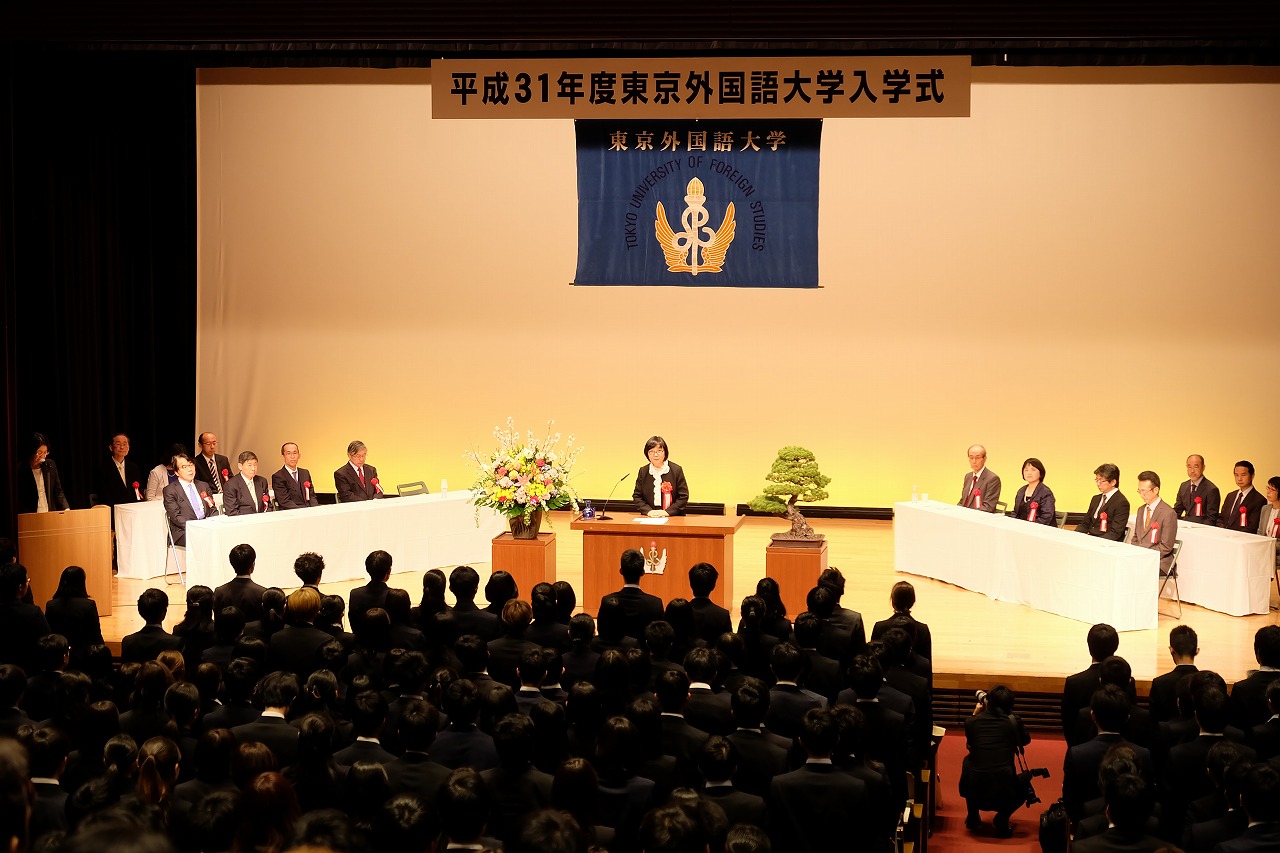
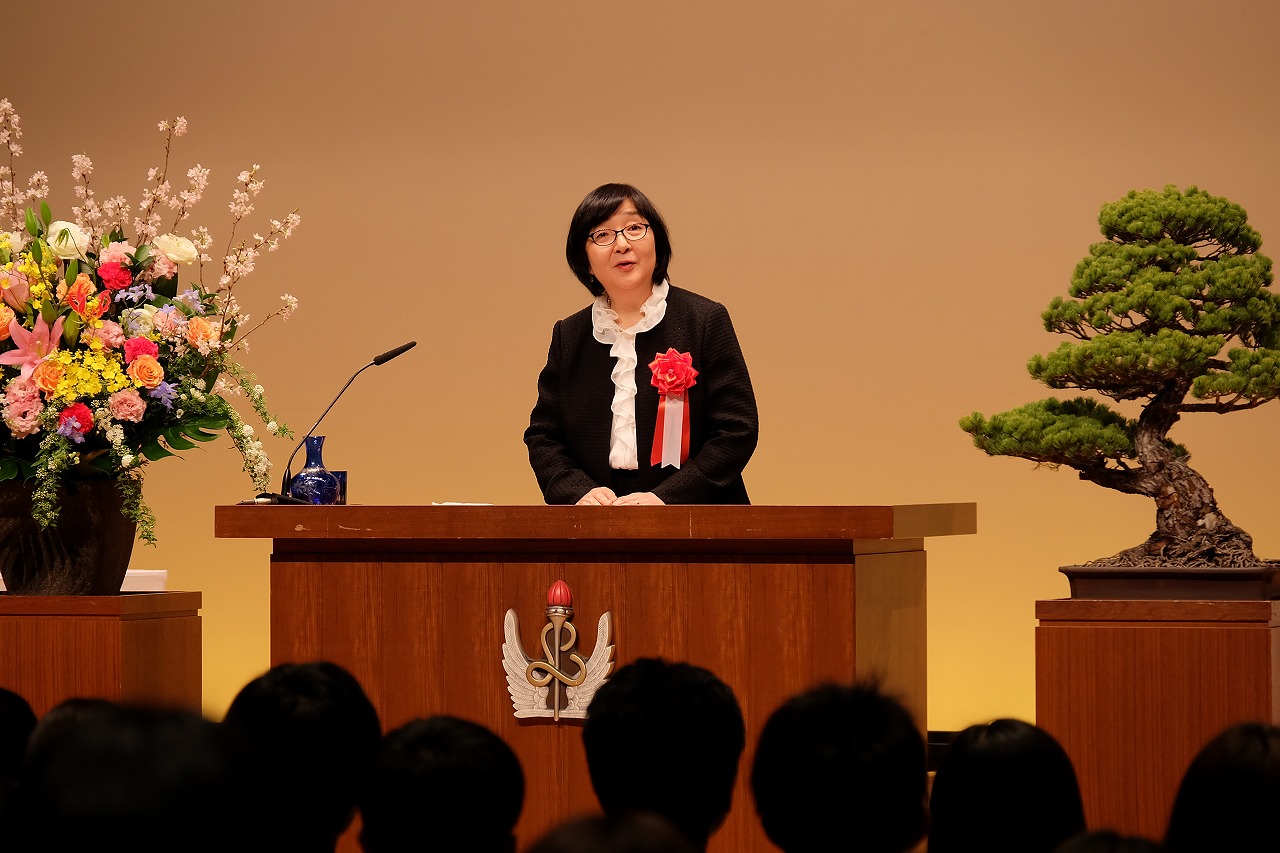
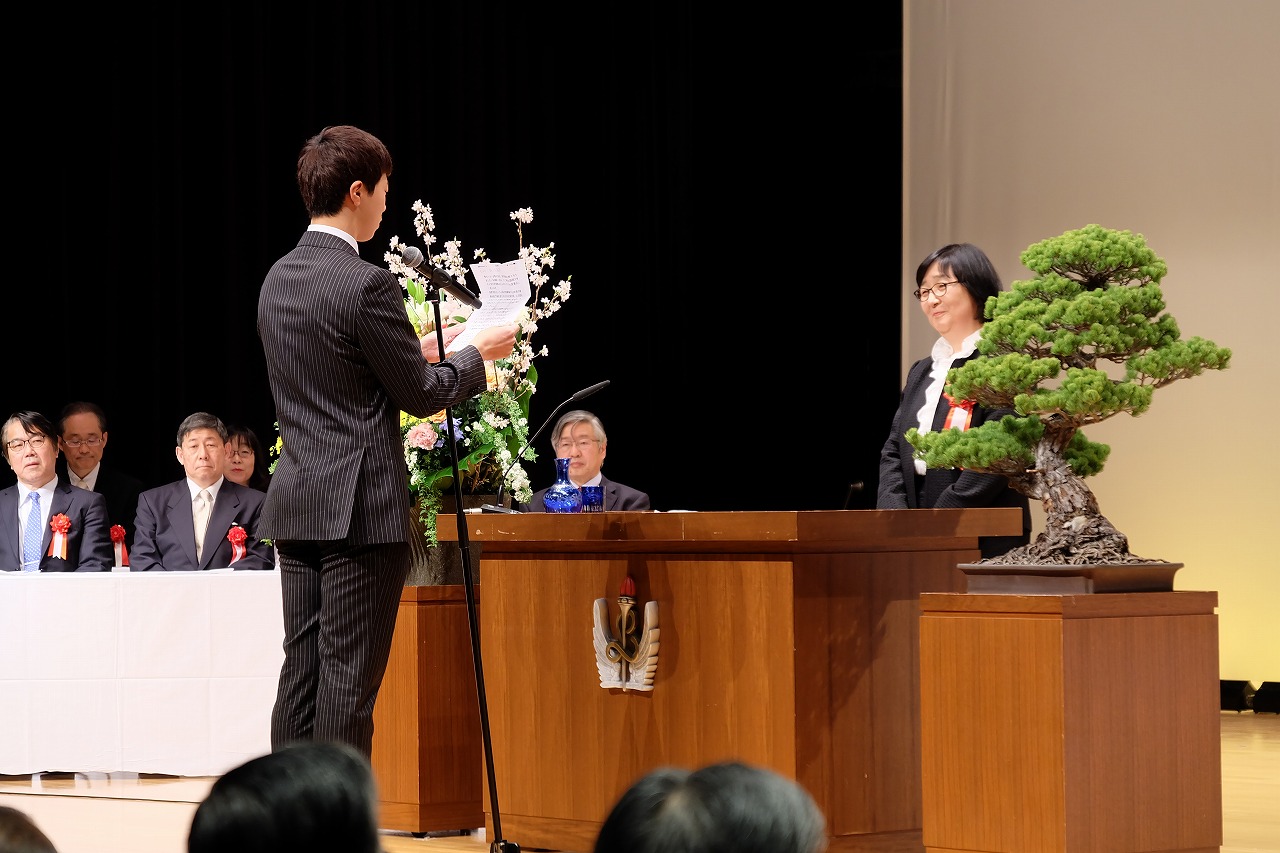
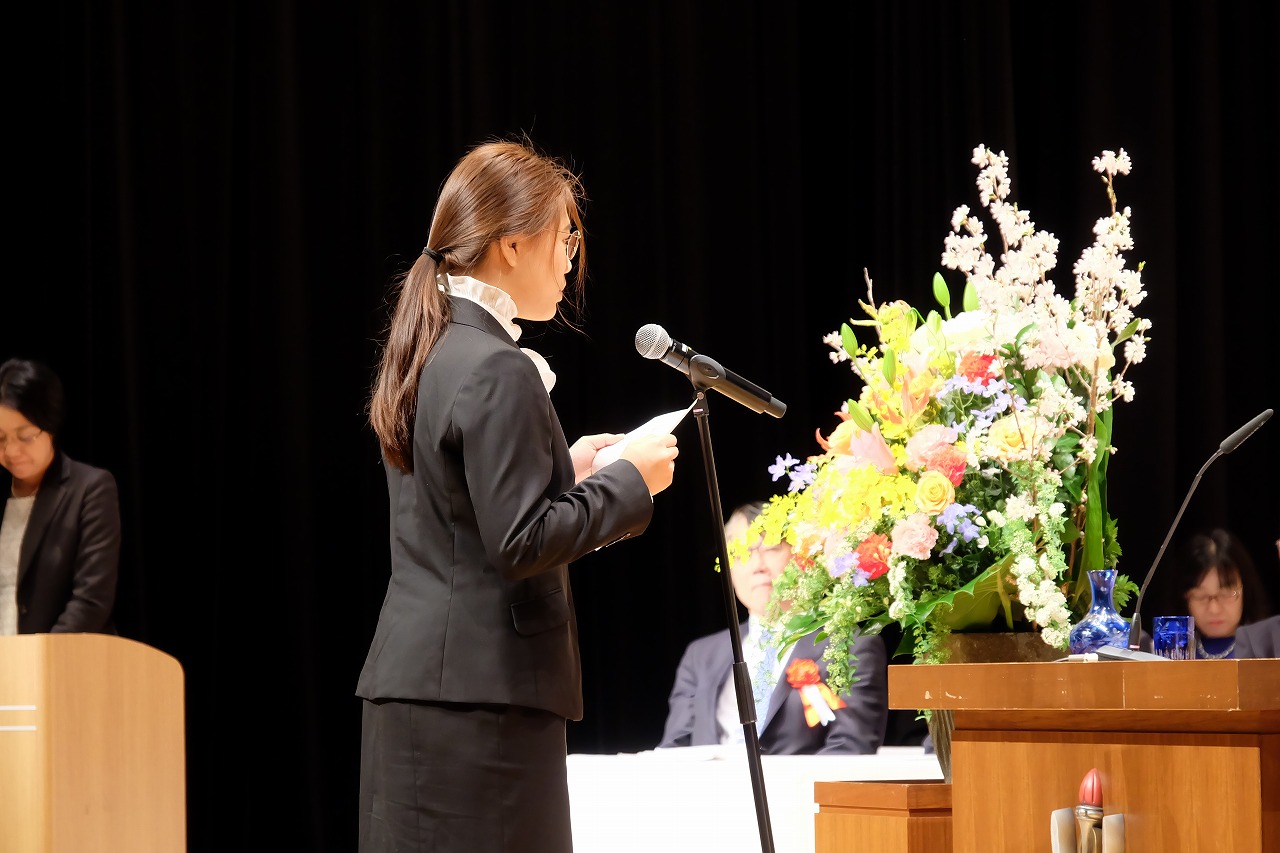
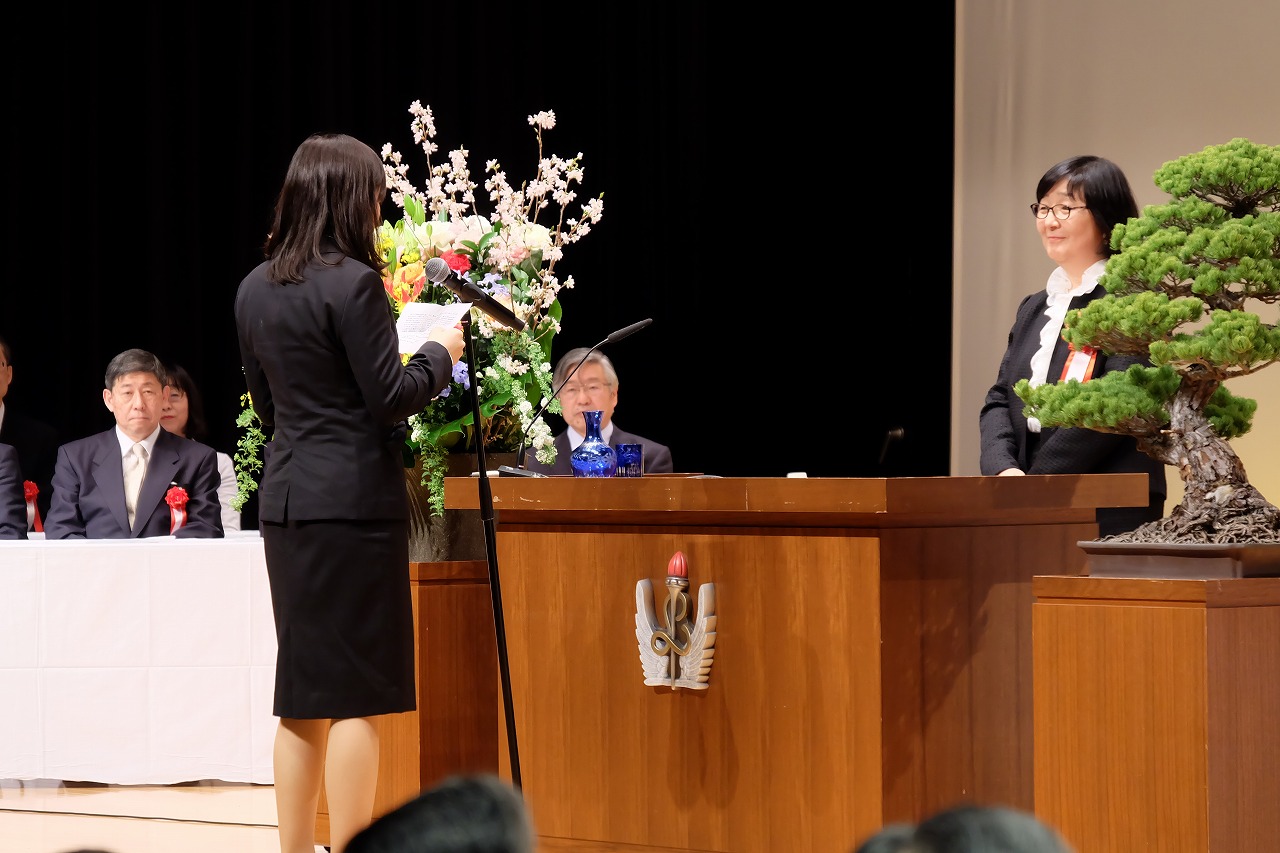
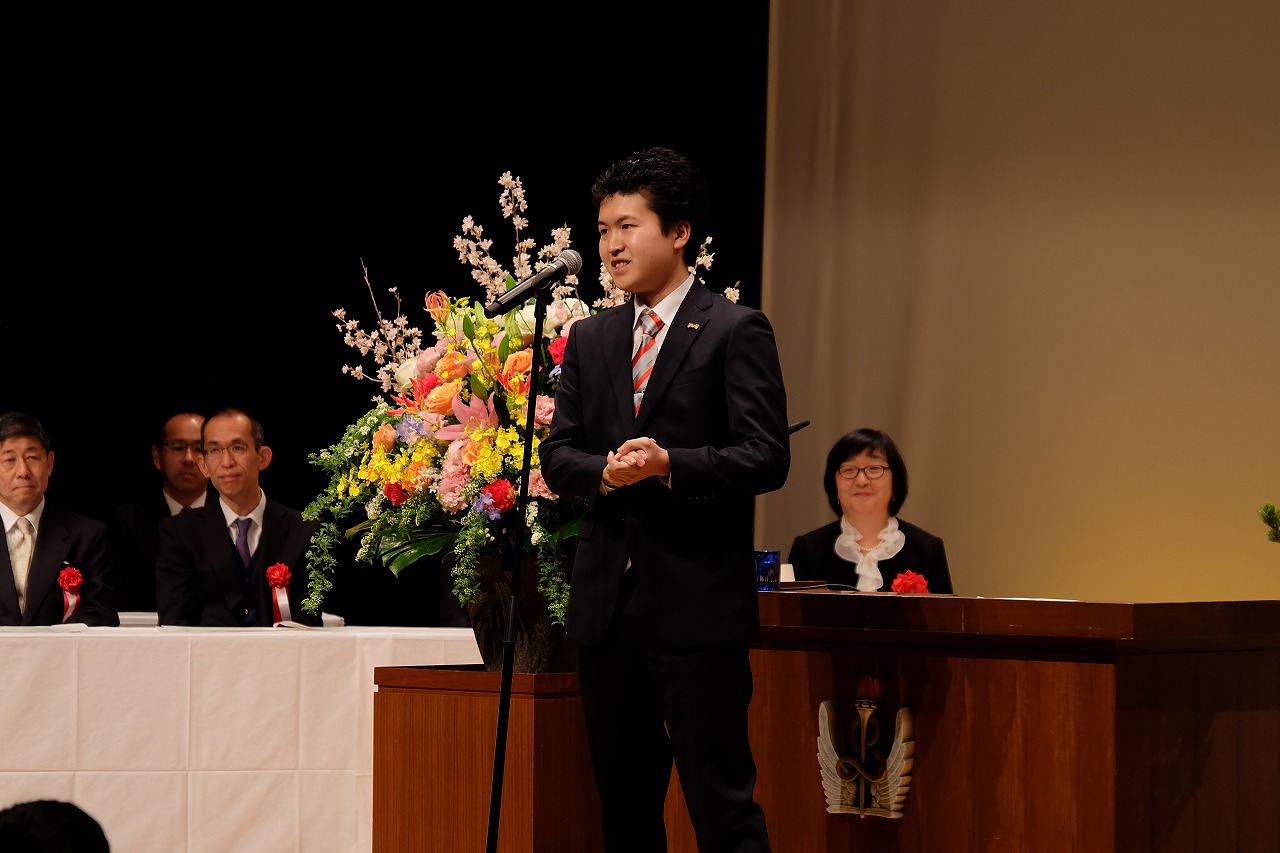
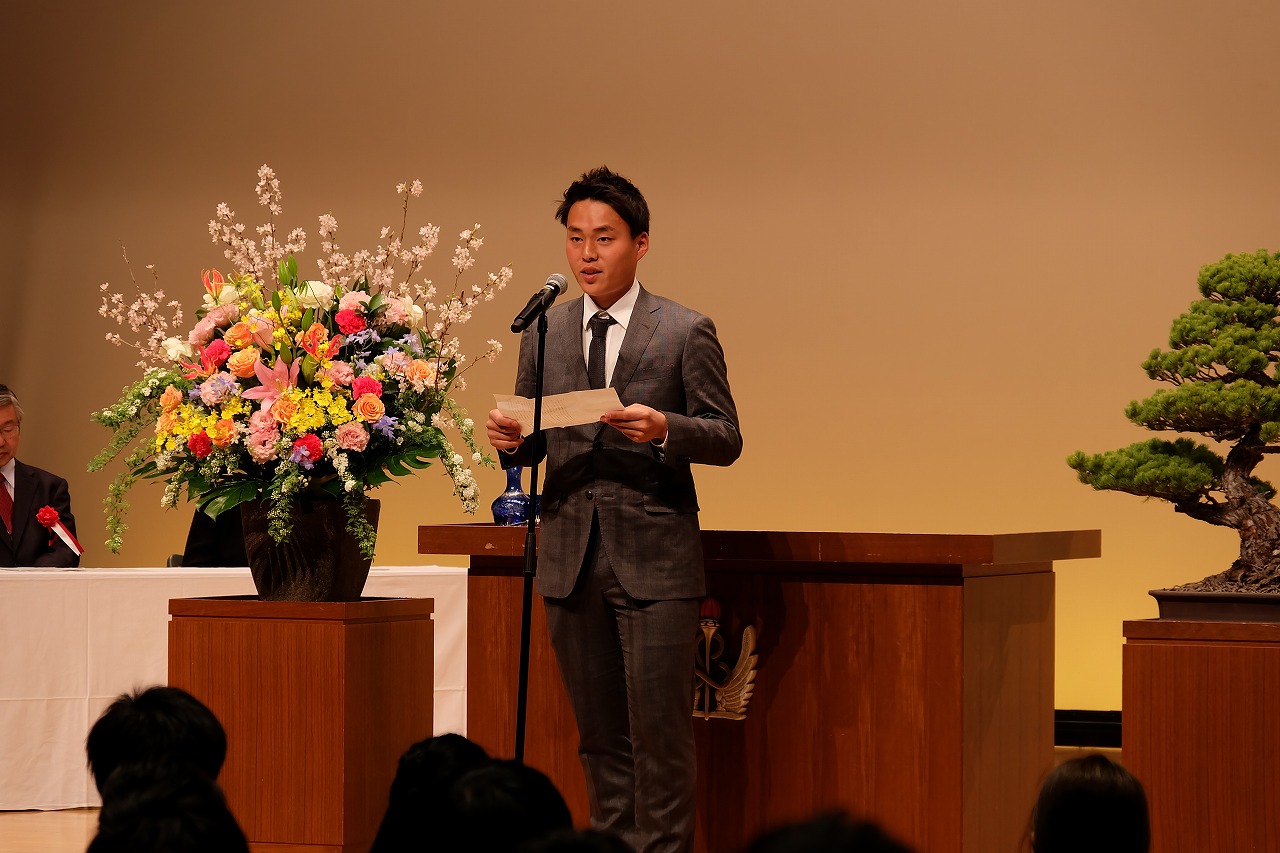
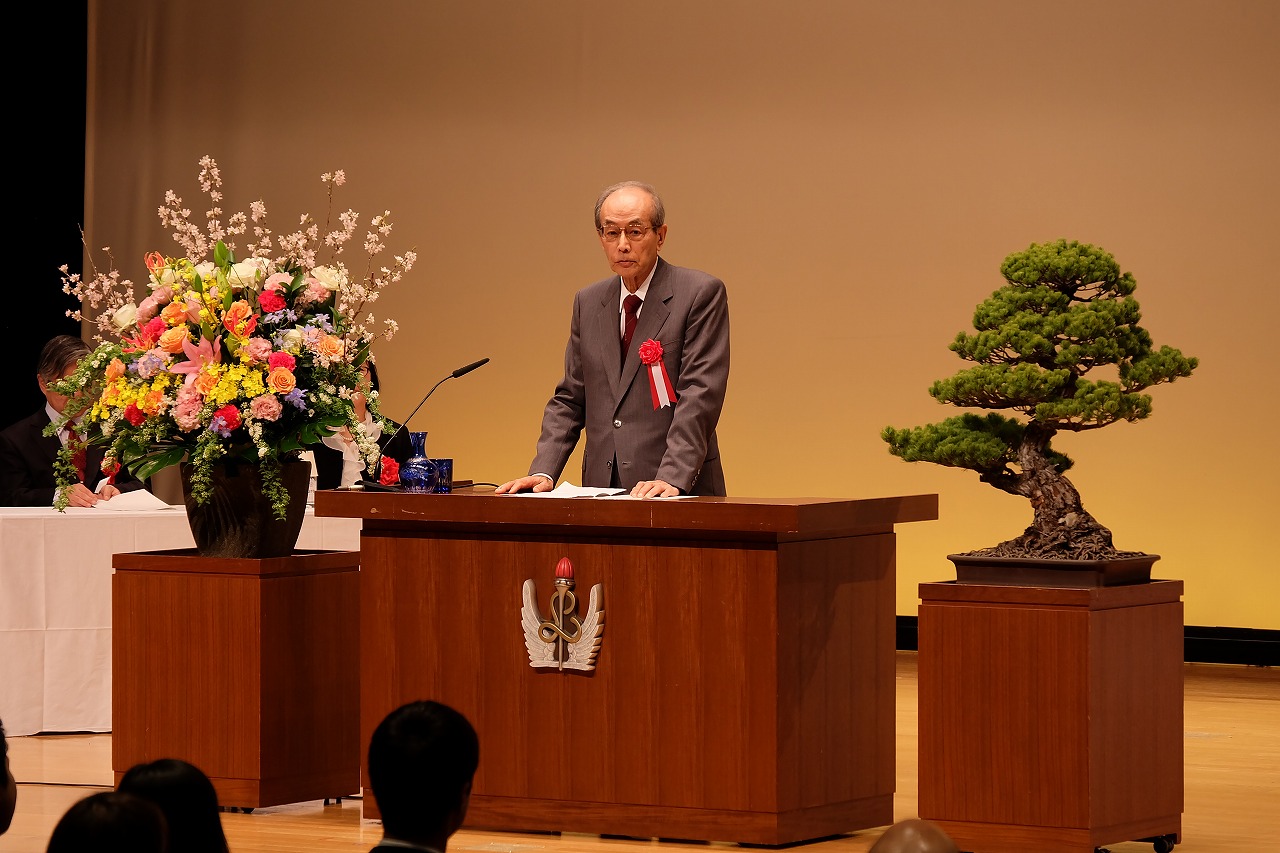
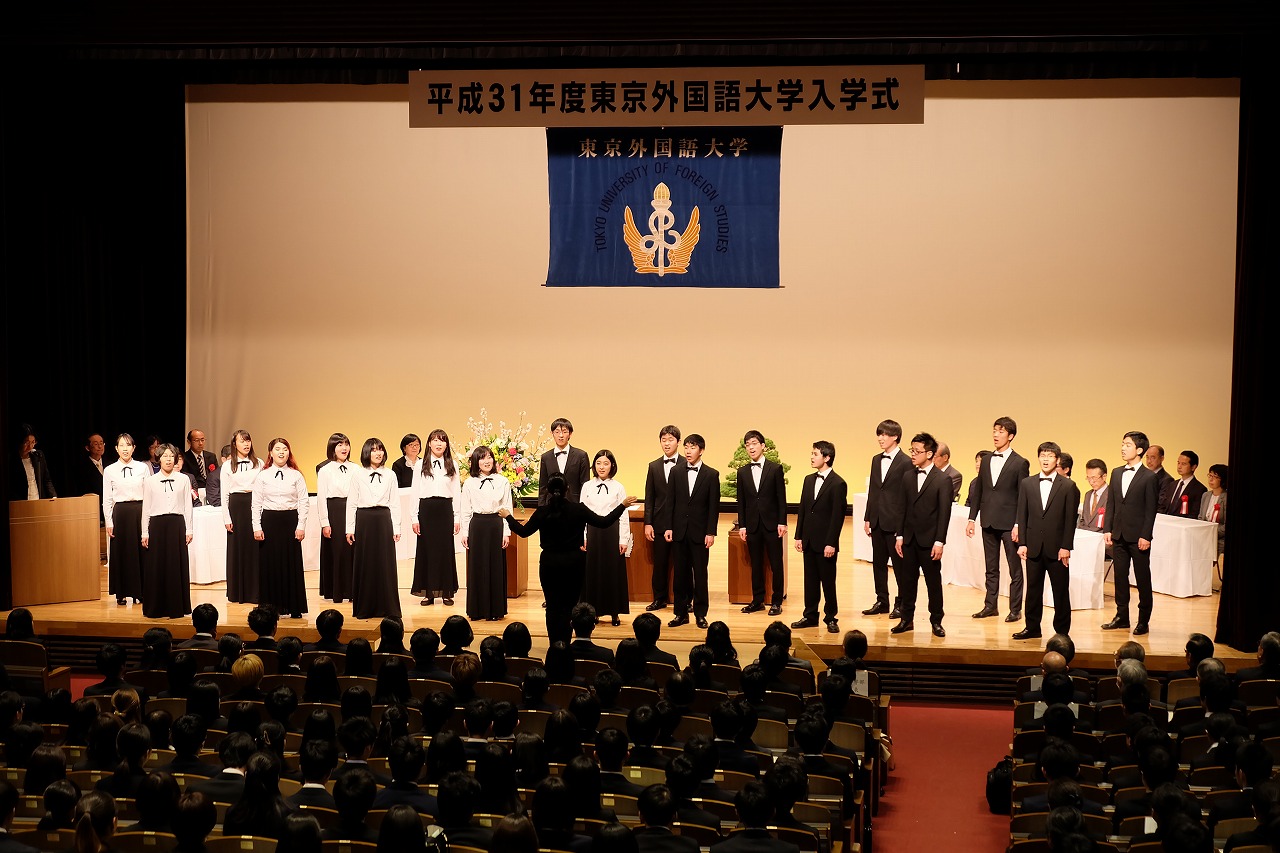
2019 Entry Ceremonial Address from the President

Greetings, everyone. It is a great pleasure to welcome you to the Tokyo University of Foreign Studies. My congratulations to all of you assembled here today.
Now you are members of this university community. Throughout our long history of 150 years, the Tokyo University of Foreign Studies has played a significant role in Japan’s modernization, internationalization and globalization. Today, as Japan and the world come to a major turning point, the true value of our efforts will be tested.
The value and the challenges of global diversity have always been the driving forces of our university’s education and research of languages, cultures and societies. The world has always been in need of professionals who can bridge across societies and people with different backgrounds and values to facilitate mutual understanding. We have been filling that need. Your predecessors, with their deep understanding of linguistic, cultural and social diversity in the world, have indeed played crucial roles in connecting Japan and the world.
In this 21st century, however, as the world is turning into a single global society, the realities of diversity are emerging as “problems” in various places throughout the world and here in Japan as well. It is a complex challenge to create common ground for people to interact and live together in peace. The pessimists may claim that the only solution is for people of different cultures either to live separately in isolation from each other or to be assimilated into a single ‘main-stream’ culture. We do not agree. We believe in the third possibility of mutually respectful coexistence. However, in the face of numerous complex issues and challenges, our ideal of a truly intercultural society is not easy to realize.
We tend to assume that diversity among languages and cultures occurs spontaneously and widely, but in many places, they are in fact confined and controlled within national boundaries. There is also a progressing tendency for the cultures of those with power to dominate. The “diversity” among languages, cultures and societies of the world is no longer self-evident, and we have to reexamine the exact nature of the linguistic, cultural and social diversity that we study.
The situation is further aggravated by a “my-country-first” trend that excludes others in pursuit of isolated comfort or an exclusive attitude that sings high praises of one’s own culture and belittles all others. I am sure you all feel this development.
I do not want you to live a life that is dominated by such a narrow view of the world.
I am sure you have heard of the word “biodiversity.” This term refers to the fact that diversity in biological species is what enables life to continue and prosper. This is equally true of culture. We must challenge the trend to eliminate diversity and seek other ways to overcome difficulties and problems without resorting to isolation or assimilation. This will give rise to a new kind of co-existence that is based on mutual respect, learning and accommodation.
The next question is: What can we do to achieve this? Even when we interact with close friends, we still need to have accurate knowledge and an ability to understand each other. This is all the more important when we interact with people who are very different from ourselves. We need to learn as much as we can about them and have the strong skills to engage in dialogue with them. Even more importantly, we need to be open to, and ready for, change through our interactions with others.
The Tokyo University of Foreign Studies is a long-time leader in providing education in support of this ideal of intercultural co-existence. Today, realization of this intercultural co-existence has become a more pressing challenge both within Japan and in the world. This is the time for each of you to study broadly and gain deep understanding of this challenge. It is our hope that the Tokyo University of Foreign Studies will provide you with the learning experience that you will need to achieve this. All of us, teachers and administrative staff, look forward to supporting you each and every day as you grow to become global citizens dedicated to a future of intercultural co-existence. Please, keep your sights high and stay true to your ideals. Our hopes for the future rest in each and every one of you. I wish you a fruitful and productive four years.
6th April 2019
HAYASHI Kayoko, President of Tokyo University of Foreign Studies
